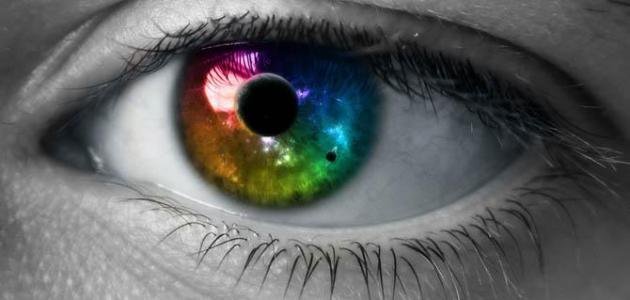
Does the eye size change with age? Scientists differed in the classification of human body organs in terms of importance, but most agreed that the eye is the most complex member and also sensitive, after the heart and brain, if not in parallel with them. They are composed of three main layers: the solid, the choroid, and the retina. The solid is a connective tissue that protects the eye and is rich in blood vessels. The front part of this layer is called cornea, which is transparent and has no blood vessels. It is fed by oxygen through water mixing,It is the substance that secretes the ciliary body. Chorionic is mediated by the solid and retina, which is rich in blood vessels; its function is to deliver oxygen-laden blood to all sections of the retina. It is rich in melanin, a pigment that absorbs the surplus of light rays passing through the retina, preventing its reflection, leading to clarity of vision.
A question asks .. Do you think that one day you watched your eyes and wondered why your eyes do not grow like other members of the body adjacent to them like the nose and chin and others?
n fact, in order to answer this important question, it is important to note the similarities between the eye and the camera during the different stages of life. The solar imaging is easy to observe and interpret the mechanism in which the eyes work, The images, as long as they are open, perform this function, and the eye is shaped closer to the ring except for a slight bulge. The anatomical structure of the newborn is about three quarters of an inch wide, while it increases to an inch in adults.
From this we conclude that the eye does not grow much with the growth of the rest of the body, and this explains and explains the phenomenon of wide eyes and large roundness in young children, and it is noticeable that the face grows and changes its dimensions and details much later, while the eye changed size is almost negligible Like other members. While the outer shell of the eyeball is characterized by durability and bleaching color, except for the area where the swelling of the front where it is thin and transparent, which allows light to enter the eye and know this transparent swelling (cornea), whose main functions provide the protection of the eye from damage and external factors.